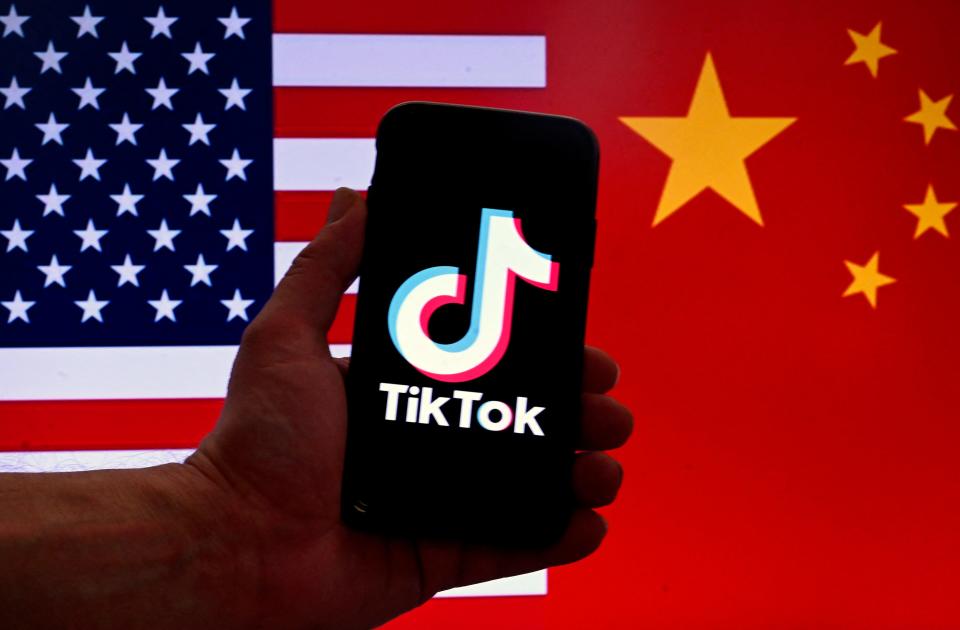US wants to ban TikTok, but First Amendment demands stronger case on national security
The House voted 352-65 a week ago to pass the Protecting Americans from Foreign Adversary Controlled Applications Act. It would prohibit the distribution, maintenance or updating of TikTok or another designated app “controlled by a foreign adversary” within 180 days of the bill’s enactment unless there's a “qualified divestiture” – a sale approved by the government’s executive branch.
The proposal raises concerns for the speech rights of 170 million American users if the government’s actions require a sale or an outright ban of TikTok.
Notably, unlike past proposals, the bill is not an immediate ban but rather provides an option for a sale or divestiture approved by the government. The distinction between a straightforward “TikTok ban” and a forced sale or divestment might not impact users if a sale is unable to occur.
However, it will be important in any legal challenges under First Amendment analysis.
While there are other platforms for short-form video, TikTok’s users – content creators, consumers or small businesses – have chosen that platform as the one that best fits their needs and preferences. To overcome First Amendment concerns, the government will likely need to demonstrate that forced divestment or otherwise banning the app advances a compelling government interest and represents the least restrictive means of advancing that interest.

Regulating TikTok opens door to censoring Facebook, X
What might that compelling government interest be?
TikTok is headquartered in Singapore and Los Angeles, but its parent company ByteDance is a Chinese company. Because of this connection, some in Congress are primarily concerned with the data TikTok collects on Americans and how, if given to the Chinese Communist Party, that data could be used against U.S. interests.
Others say Beijing could manipulate the TikTok algorithm to engage in nefarious activities such as election interference or misinformation.
Hands off TikTok: Biden has shown us why government and social media shouldn't mix
However, much of the data collected by TikTok is already available for purchase on the open market through data brokers, and it seems China would rather gain information that way than torpedoing TikTok altogether.
Further, the government regulating TikTok because of concerns about how it organizes its algorithm could open the door for similar regulation and censorship of U.S. companies that collect data on its users – such as Facebook and X (formerly Twitter) – should a president decide to allege their leadership is influenced by foreign adversary in some way.
National security vs. 'our commitment to free expression'
Many have found that while there might be concerns about TikTok that lead to different individual choices around whether to use the app, the government has not yet made a strong enough case on national security.
In fact, the House Intelligence Committee's ranking member, Rep. Jim Himes, D-Conn., voted against the proposal, writing that he believes there is “a way to address the challenge posed by TikTok that is consistent with our commitment to free expression.”
Even in cases of known propaganda like the publication RT America, the U.S.-based broadcast of the Kremlin-backed Russia Today, the United States did not ban access to information but rather trusted Americans to choose the truth in the market of expression. Ultimately, it was the decisions of private actors and not the government that led the decade-old news outlet to go off the air in 2022 (though RT content in English can still be accessed via certain online streaming services).
Pick your presidential waffling: Trump flip-flops on TikTok ban, Biden plays both sides
Right now, we don’t know what the Chinese government is doing with TikTok data, or what if any influence it might have over decisions about the algorithm. This is why, in order to protect Americans, there are less restrictive steps Congress could consider that would have less of an impact on speech short of forced divestment.
The U.S. government has, for instance, banned TikTok from government devices. It could further consider requiring apps to post disclaimers if they have ties to the Chinese government or other adversarial nations, so that users are aware of concerns about propaganda, or it could require data be held at local sites.
These actions also have trade-offs and consequences, but they'd have less of an impact on free speech rights of TikTok’s American users.
Notably, the bill may not solely impact foreign businesses. It focuses on the distribution, maintenance or updating of a designated app or website. As a result, the burdens and penalties related to its enforcement could fall on U.S. companies.
These are companies that have chosen to allow TikTok in their app stores, for example, and, if a divestment does not occur, may be forced to remove the app even if they felt it met their data security requirements.
Opinion alerts: Get columns from your favorite columnists + expert analysis on top issues, delivered straight to your device through the USA TODAY app. Don't have the app? Download it for free from your app store.
This raises concerns about potentially unconstitutional government intrusion into the decisions of these platforms regarding what content to host. Further, it could set a dangerous precedent of government intervention in the online space that many would find anathema in the offline space.
Given the potential impact on speech, concerns about TikTok must be addressed in a nuanced way, and there should be a high burden of proof for the government’s national security concerns.
The focus should not be merely on the company but on the impact on the millions of Americans who have chosen TikTok as a forum for expression – and the potential precedent it could set for government intervention into social media.

Jennifer Huddleston is a technology policy research fellow at the Cato Institute and an adjunct professor at George Mason University’s Antonin Scalia Law School.
You can read diverse opinions from our Board of Contributors and other writers on the Opinion front page, on Twitter @usatodayopinion and in our daily Opinion newsletter.
This article originally appeared on USA TODAY: TikTok ban threatens free speech of 170 million American users

